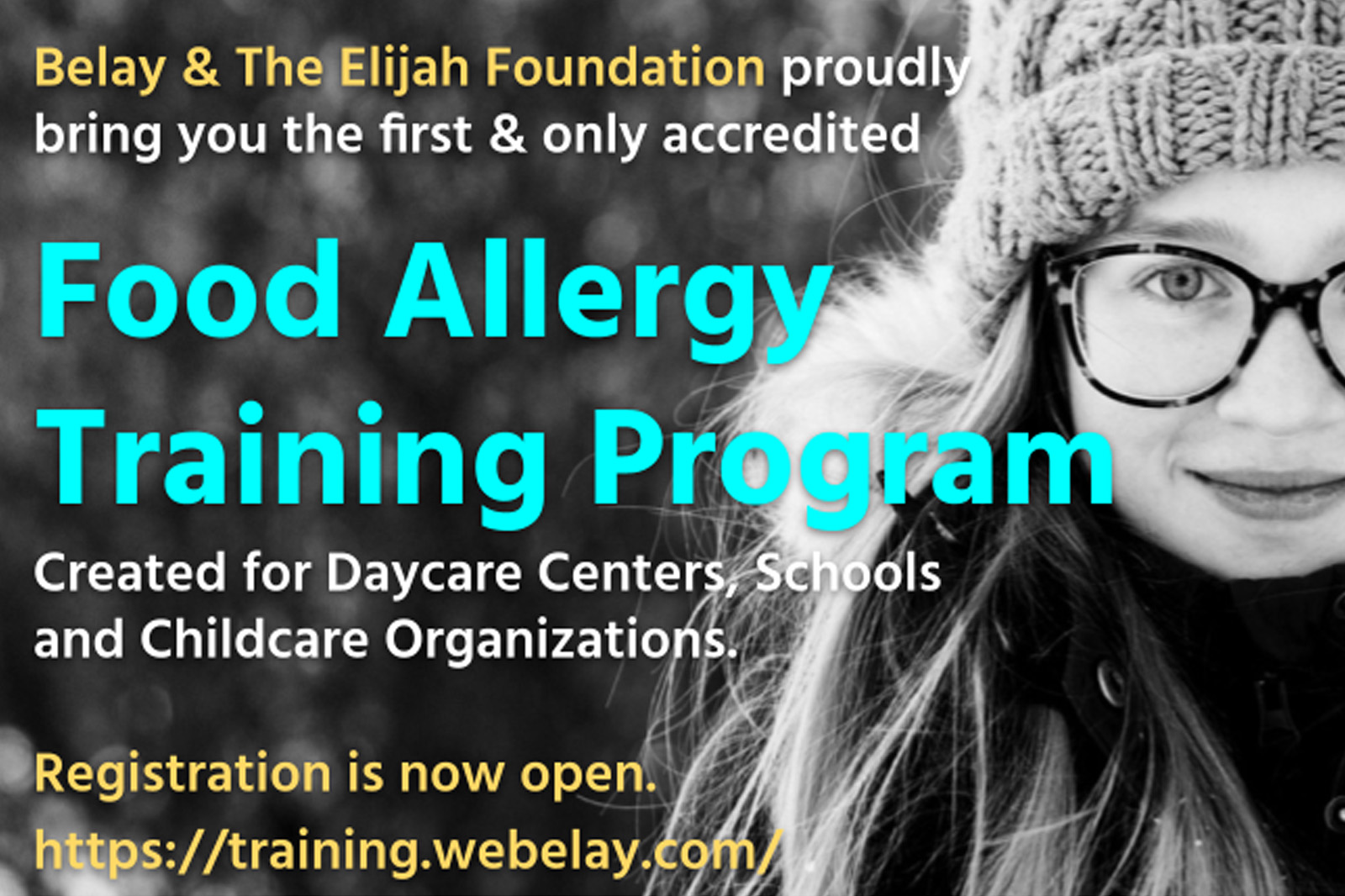Isabella is exceptional in many ways; not only is she excelling in her double major in neuroscience and physiology at the University of Toronto, the captain of the Varsity Blues field hockey team, and an amazing friend to all, she is also incredibly resilient. Isabella is 21 and has struggled with severe allergies to dairy for the entirety of her life. We attended elementary school together, where I witnessed first-hand, the daily challenges she had to face, whether it was when she couldn’t eat the cupcakes at our classmate’s 10th birthday party, to being sent to the hospital in an ambulance after a day at the beach where her meal was cross-contaminated with dairy. I sat down with Isabella, over Zoom, to have a conversation about the transition from living with her parents, to finding her way in a city halfway across the country from her home, and how her food allergy diagnosis impacted her university experience.
team, and an amazing friend to all, she is also incredibly resilient. Isabella is 21 and has struggled with severe allergies to dairy for the entirety of her life. We attended elementary school together, where I witnessed first-hand, the daily challenges she had to face, whether it was when she couldn’t eat the cupcakes at our classmate’s 10th birthday party, to being sent to the hospital in an ambulance after a day at the beach where her meal was cross-contaminated with dairy. I sat down with Isabella, over Zoom, to have a conversation about the transition from living with her parents, to finding her way in a city halfway across the country from her home, and how her food allergy diagnosis impacted her university experience.
How was Residence cafeteria life?
Isabella’s Residence (aka Dorm) at UofT, Morrison Hall, did not have any kitchens or kitchen appliances on the student floors, so all students had to use one cafeteria.
With discontent, Isabella expressed how hard it was eating in a cafeteria, especially when her residence had no kitchen where she could safely cook meals for herself. She said it was extremely difficult having a dairy allergy because kitchen staff did not understand the severity of it and would assume her allergy was just lactose intolerance. This dangerous assumption often resulted in cross-contamination, and Isabella had lots of allergic reactions in the dining hall. When trying something new, she would first have a small bite then wait to see if she’d have any signs and symptoms of anaphylaxis, a strategy she mastered during her first year at university. [Belay note: This is incredibly dangerous and should not be a strategy used by anyone. It’s terribly unfortunate Isabella had to resort to this]. She believes this strategy helped her avoid a few reactions but not surprisingly, she still had several severe reactions, which sent her to the hospital.
In terms of options, if the rotating meal was offering a dairy-based meal, she said her go-to choice was the salad bar with a chicken breast. Even though this was a safe option, she noted that she wasn’t getting the nutrients she needed – especially as a competitive athlete. Also, the routine of eating the same food every day bored her and she became incredibly excited for her second year when she would be able to move out of Residence and cook her own meals.
Was the University of Toronto (UofT) any help?
Without hesitation, Isabella said that the university itself was absolutely no help, and the only attention paid to the matter was in her residence application, where she was to fill out a section about her allergies. But to what end? What did they do with that information? She believes the university’s mentality was that now, as adults, students should take care of themselves. She told me her younger teammates who are now themselves in residence have recently told her that there are now more allergy labels on the food options in the cafeteria, – which she credits, in part, to her multiple complaints. Way to go, Isabella!
How has your food allergy impacted your roommates and teammates?
Isabella explained how three years into living with roommates, there has yet to be any cross-contamination in the kitchen, and that they all cook for themselves. Since her roommates are also athletes they fortuitously avoid dairy for health reasons which has been helpful to Isabella. Jokingly, she told me that they has every kind of “milk” in her fridge from almond, oat, coconut except for the dairy kind. Not everyone lucks out this way.
Travelling with teammates presents a bigger problem. She explained how her team managers have always been on top of it and always tried to make sure she had options, but travelling was still rough. They would travel through the U.S in pre-season and eat at large chain restaurants that didn’t have great options or alternatives for dairy allergies. Team dinners or potlucks were better and there were always a few things she could eat. When things were in the team’s control, it was so much easier.
How has vegan culture impacted your meal options?
Isabella gave me a two-fold understanding of the pros and cons. She expressed that the health trend of people wanting to eat dairy-free ironically minimizes the perspective of her allergy, seeing it as a choice, and not something life-threatening. “Because people think this is my choice, they take it less seriously and are therefore less cautious about cross-contamination.” On the other hand, vegan culture and vegan restaurants are actually really helpful, as it is guaranteed to be 100% safe. Amazingly, she trusts foods labelled vegan, over those labelled dairy-free.
Do you feel like you miss out on the social aspect of eating out with friends?
When she was in elementary school, she was never able to go to overnight summer camp and was excluded from birthday parties like “Make your own pizza night.” However, now she doesn’t feel like she misses out on much as she and her roommates eat separate meals due to their busy schedules and eating preferences and not because they want to exclude her. When going out to eat, her friends are incredibly inclusive and willing to change restaurants to accommodate her. She often prefers to eat at home, not just because of her student budget but also for her own safety. Isabella will often just ask her friends to meet at 8 pm so that she can eat at home instead of going out with them to a restaurant. Thankfully, they’re happy to do that for her.
What is it like eating with your boyfriend’s family?
It hasn’t been easy. To begin with, she already dreads burdening people in their homes as she understands how easy it is for people to accidentally contaminate her food with dairy. It’s not always easy to discern which foods contain dairy and food labels are complicated to understand. She feels incredibly awkward eating at her boyfriend’s family house, especially since she’s had a few reactions there and doesn’t want to make them feel bad about her reactions. Unfortunately, Isabella has decided to refrain from eating at her boyfriend’s family’s house as she’s already had six reactions in their home and fears having more.
What is your experience with ordering food?
Isabella says she never orders food. She hates calling restaurants and apps like Uber Eats and Doordash only have one small section dedicated to notes on allergies. She says that they often make mistakes and rarely check the notes, where she makes sure to explicitly include her restrictions and allergies. She will only order from vegan places, where there is a guarantee there will not be any diary, or else she is too frightened.
How was the transition from having other people cooking for you to having to feed yourself? How was the transition from living at home to moving away and having to manage food on your own?
Reminiscently, Isabella told me how she recalls coming to university already scared to be across the country from her family and being sent to the hospital terrified with a new friend, who of course, was not yet aware of all her personal information. She found the transition into the second year a lot easier but certainly had to learn to cook for herself – a challenge for many college students. Her mom’s dairy-free cooking and baking had a big influence on her and made her into the baker she is today. She would often text her mom asking for her old favourite recipes or check Pinterest out for some good ideas. She has the experience now to pull out the dairy substitutes needed for recipes and can figure it out on her own.
What advice would you give those who are nervous about going in to Residence and moving away from home?
Depending on how nervous and cautious you are, Isabella might recommend trying to choose a residence or dorm that comes equipped with a kitchen. She acknowledges how as a first-year student, she was so overwhelmed with an abundance of things, that at the end of the day, it was actually nice that she didn’t have to worry about cooking for herself. Dining halls are also a huge place where you are able to socialize with new friends, so she understands it would be hard not getting that out of your first-year experience. She says to be careful and, most importantly to not trust everything the cafeteria says. She thinks that maybe for someone with nut allergies, a more common allergy, that the dining hall staff would take it more seriously.
What would have been most helpful in your university experience?
All in all, Isabella’s most salient request is for greater food-labelling and more food options while in Residence (dorms). She recognizes that large universities may not be able to accommodate every single allergy, especially with the mass number of students at UofT, but for common allergies like dairy, gluten and nuts, it would be incredibly useful – and potentially life-saving. She hates having to ask the kitchen staff, as they either guess the answer or have to go ask the staff in the back, which is an anxiety-producing experience. Can you blame her?
For more information about the Belay app click here













